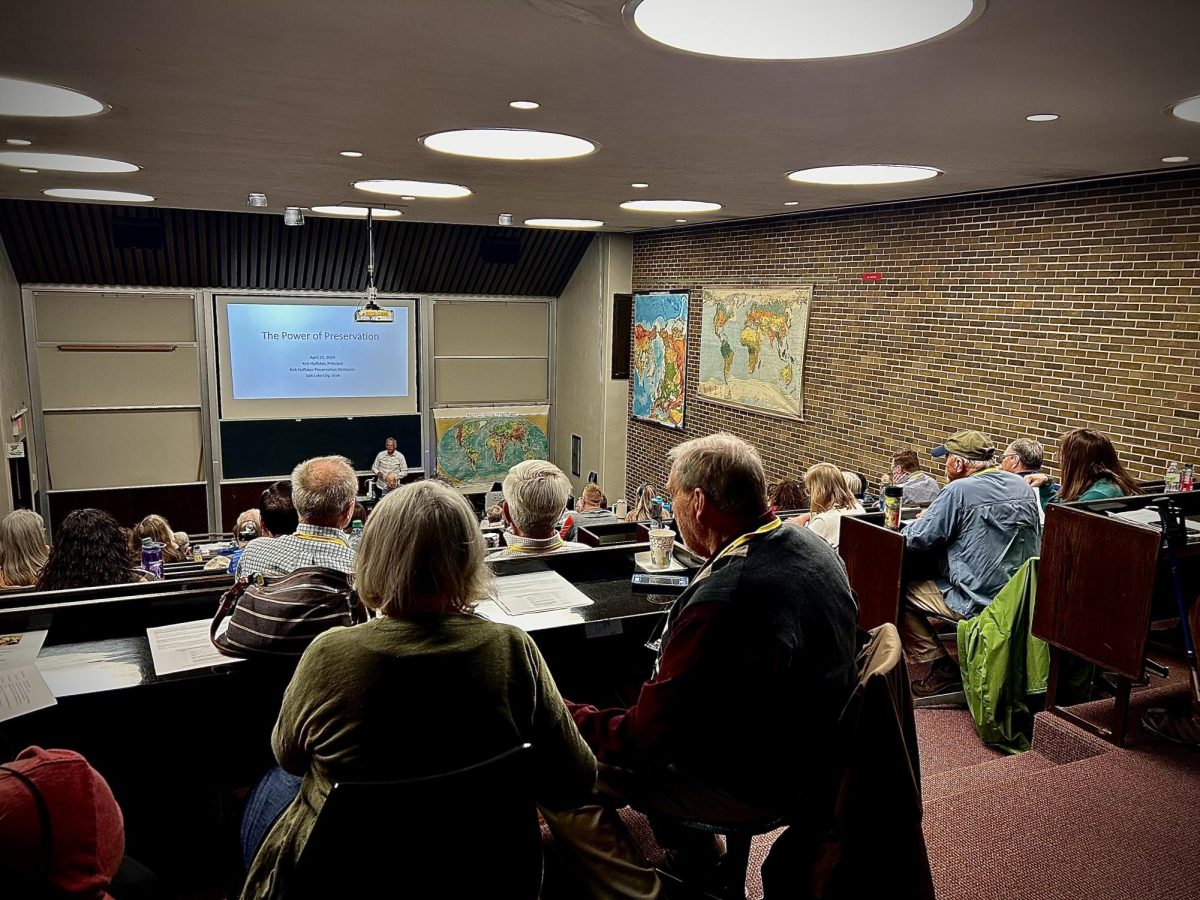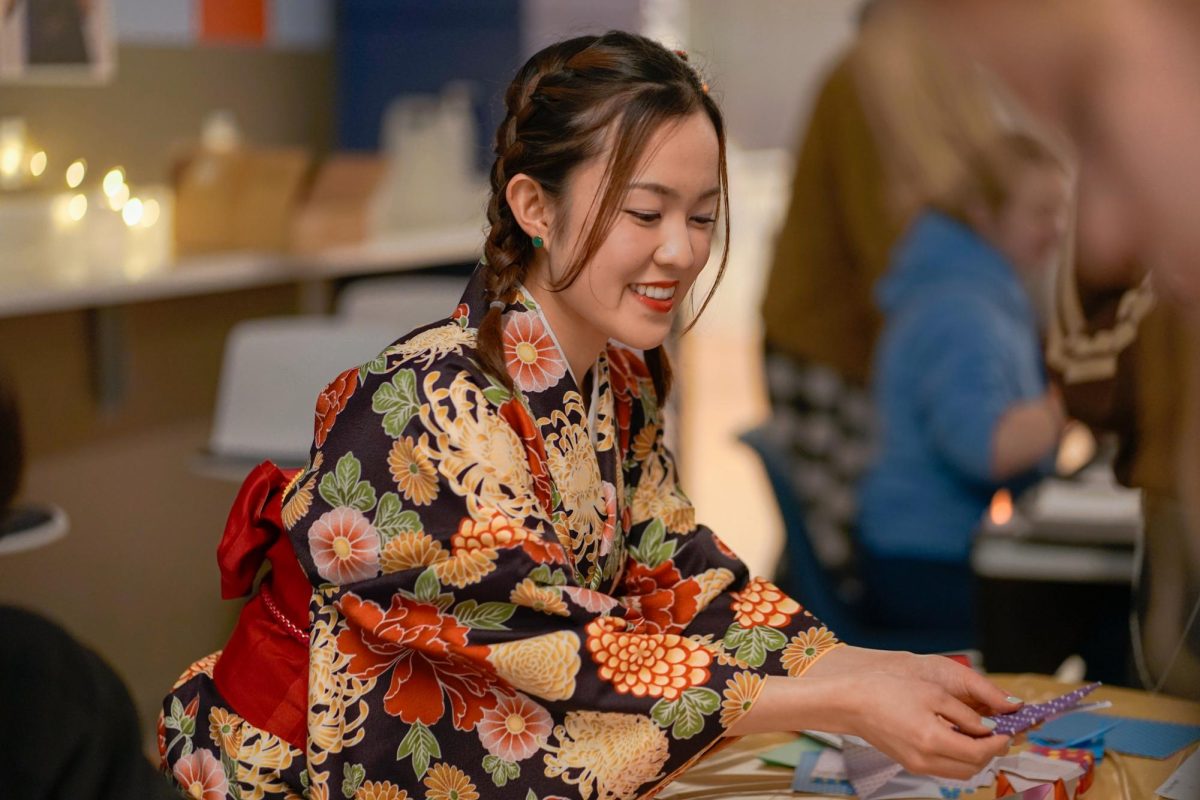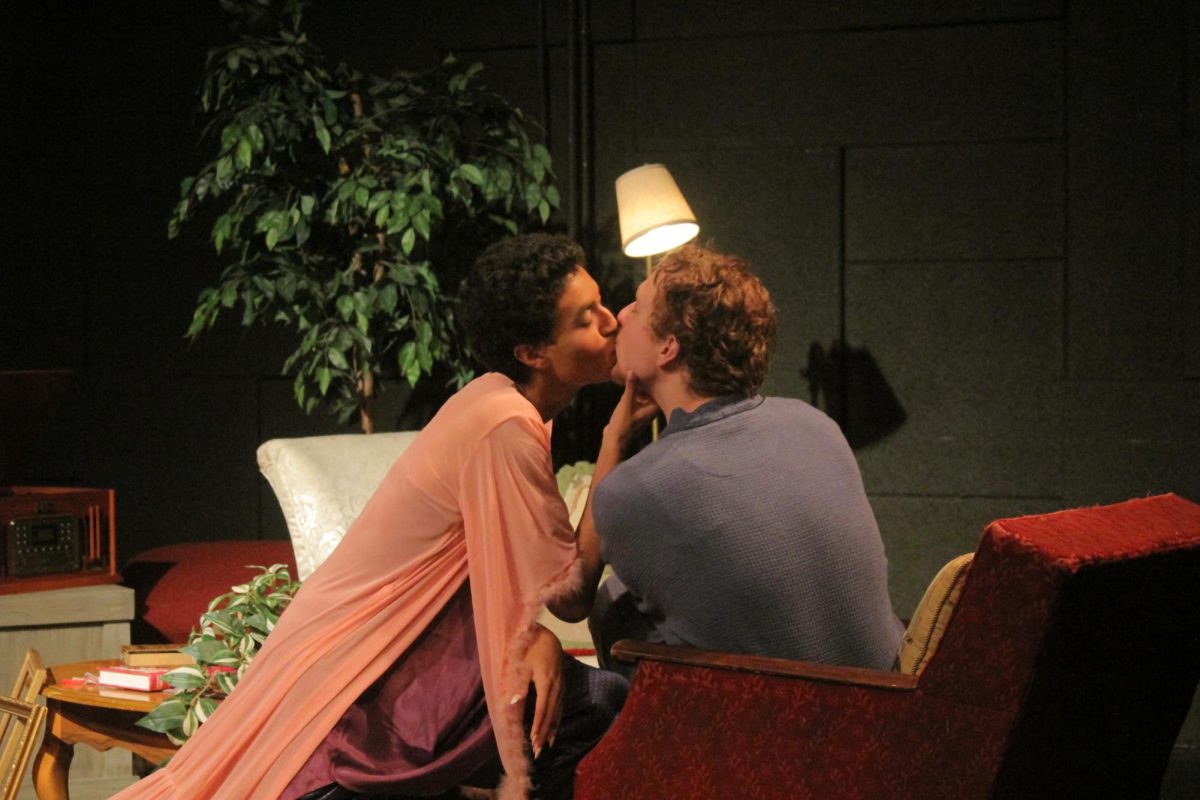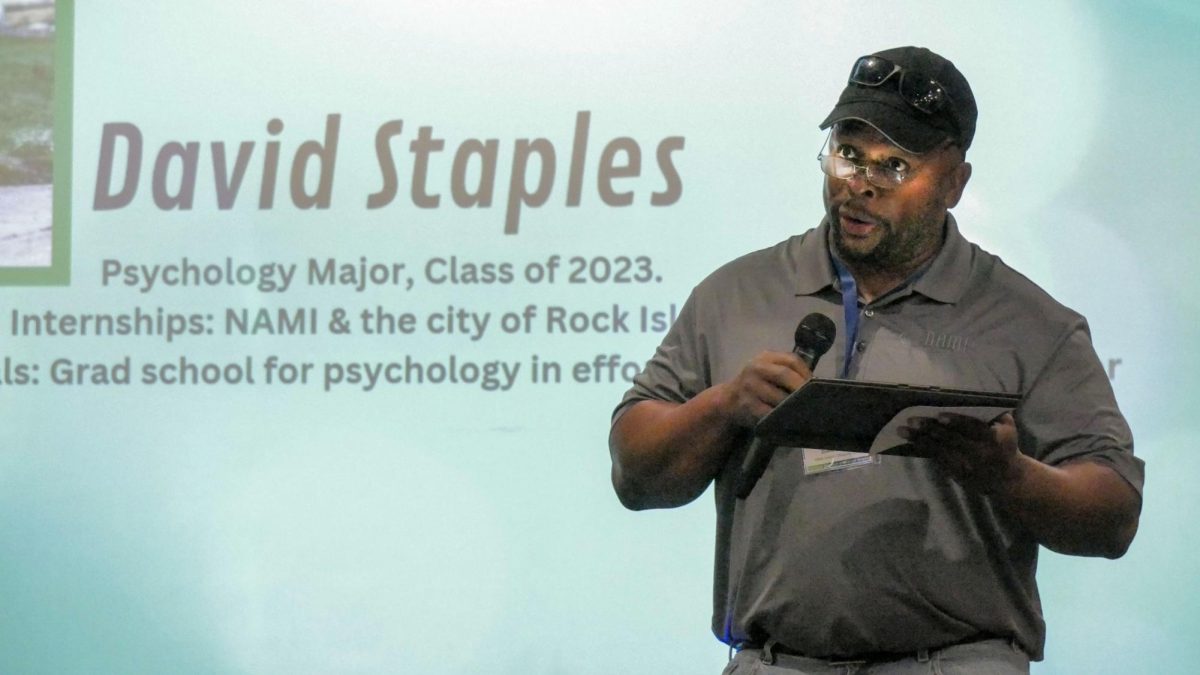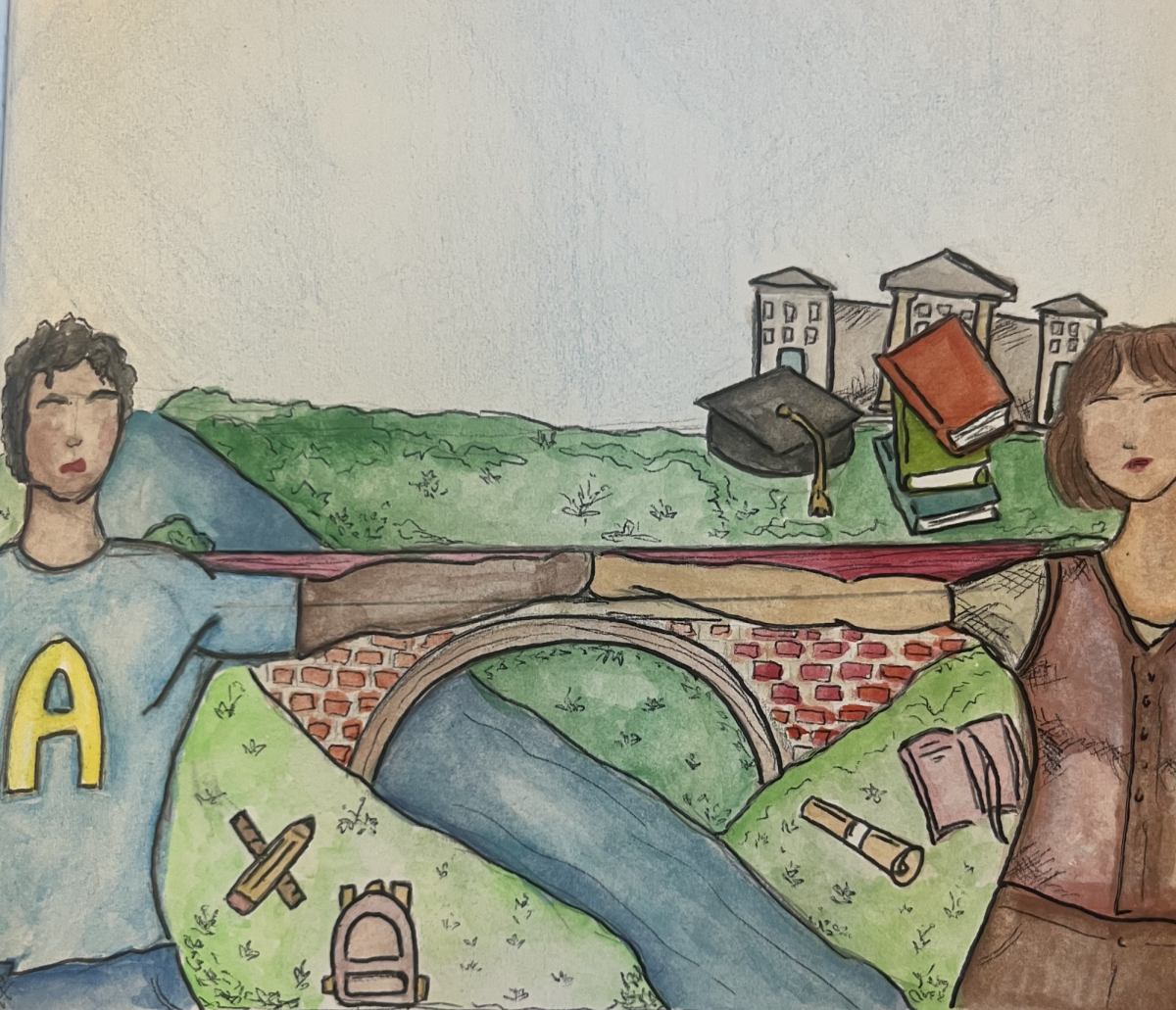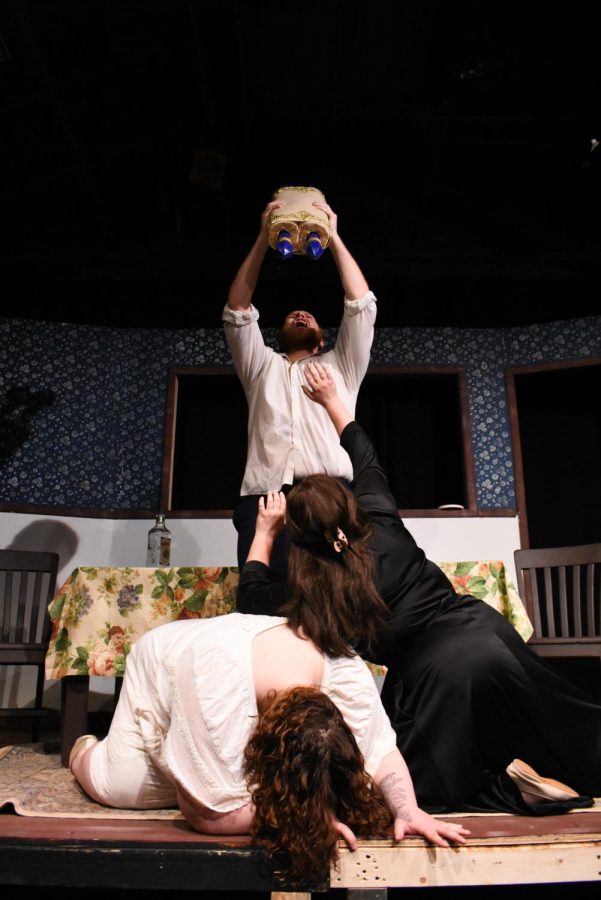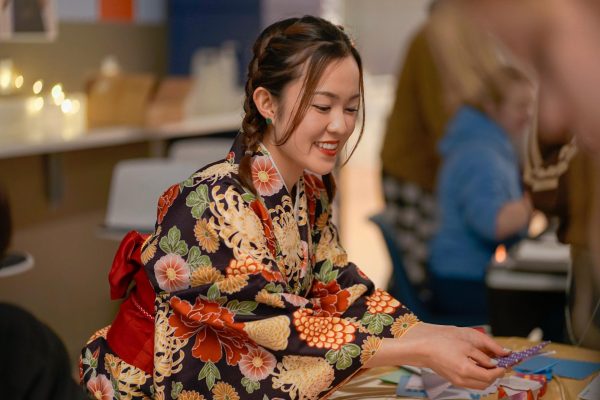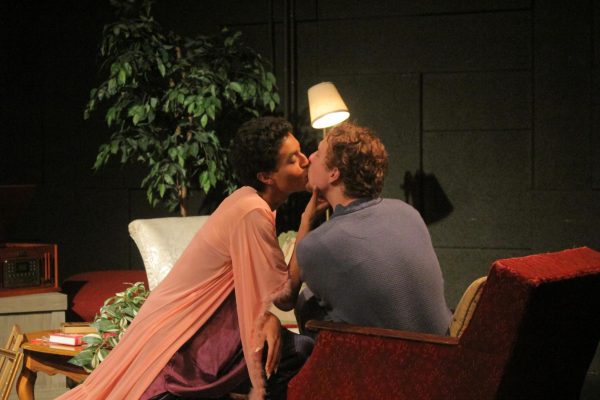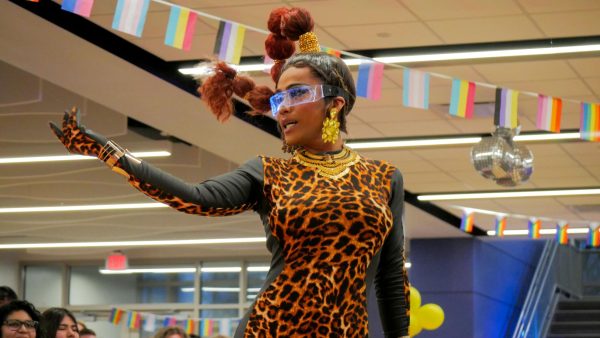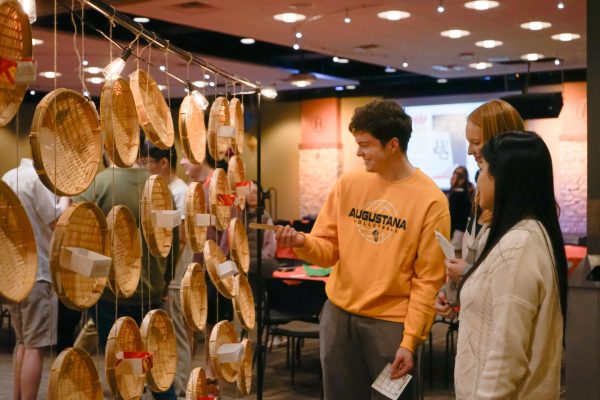“God of Vengeance” deserves a standing ovation
Spencer Warfield (center), Maya Pagel (left), and Jessa Simon (right) performing at the God of Vengeance rehearsals.
April 28, 2023
Content warning: sexual harassment and violence
The empathic drama “God of Vengeance” is the second student-directed production led by senior Synth Gonzalez. The show will be performed in the Brunner Mainstage April 27-30. Written by Sholem Asch, the story centers around a Jewish father, Yankl, who owns a brothel. His family and his business start to fall apart when his daughter, Rivkele, falls in love with one of his female prostitutes.
This love not only affects the family’s outcome but it makes each family member reevaluate their morals.
When Gonzalez chose to direct “God of Vengeance,” they were very aware of the controversy that happened when the production was first displayed back in 1923.
Over a century ago, the entire cast of “God of Vengeance” was arrested due to the “obscenity” of lesbian romance being spotlighted and the sexuality of individuals in American society not being accepted in the ways they should have been.
“It has a lot [more] to do with today than people think it does: The discrimination of women and the sexuality around women having so many more rules than men’s sexuality,” Gonzalez said.
While watching this performance, there are scenes throughout that demonstrate emotional elements from violence and hostility to compassion and tenderness. The chemistry on stage amongst the actors is expressed greatly to the point where watching the performance, there are moments the feeling of realism sets in.
Gonzalez and senior Eli Bates, assistant director and movement director, were keen on making this production process a comfortable place for the actors to express themselves and explore the other actors’ physicality, wanting to build an understanding of what intimacy is. They came up with a “boundary practice” for some of the characters.
According to senior Jessa Simon, who plays Soreh, the wife of Yankl and mother to Rivkele, this exercise helped the actors who played the family members clarify what is and isn’t off limits in a scene.
“In the beginning of each rehearsal, the family would come to the conference room and watch the other actors glide on their body with their hands where it’s okay to be touched,” Simon said. “And then the actor who will be having some kind of intimacy would grab their hand and glide over the same spots, for a direct understanding of what is okay and what is not.”
The more violent parts in the show, such as when Yankl physically assaults both his daughter and wife on stage, can be hard for the human in us to watch but even harder for the actor to step in and out of such a villainous character.
Senior Spencer Warfield landed the role of Yankl and practiced a tactic that the production team made sure to cover while working with the actors called “derolling,” which helps the actor differentiate the person from the character. The process helps the actor realize they are not who they are playing.
“Yankl is a preyer of domestic violence. He beats his wife and child and that’s something, as a man, I would hope to never embody in my life. It’s difficult at the end of the show to hang that coat up and say, ‘That’s not me. I’m not an abuser of women. I am a good person’,” Warfield said.
The production team has done a fantastic job creating the 1900s Polish Jewish setting, marking every detail they can to make the experience for the audience as real as possible. Gonzalez chose the colors on stage and in the actor’s wardrobe that have symbolic meanings. For instance, dark blue represents hypocrisy, where yellows and whites represent purity.
All the hard work and consideration both the production team and cast have put into this performance deserves a round of applause. This performance has showtimes at 7:30 p.m. April 27- 29 and 1:30 p.m. April 30, and tickets are free for Augustana students with ID. Tickets are $15 for general admission, $12 for senior citizens and $10 for faculty, staff and non-Augustana students.


